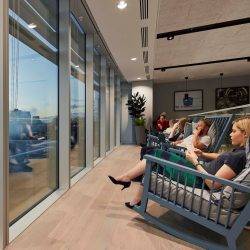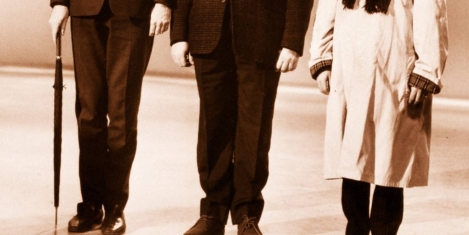January 14, 2017
Sky Central + Dealing with noise at source + The detoxified workplace 0
 In this week’s Newsletter; Neil Usher describes the vision behind Sky Central’s new activity-based workplace in London; and Mark Eltringham argues the European Display Screen Equipment Regulations are no longer fit for purpose. CRE’s attempts to advance corporate strategic goals often take a back seat to cost savings targets; the Hushme voice masking device for mobile phones promises a quieter office; and organisations are encouraged to “detoxify” their work environments to improve employee wellbeing. Why employees are prepared to move jobs if employers fail to offer flexible work; a quarter of people with money problems say it undermines their work performance; and the World Economic Forum cites unregulated technological progress as one of the greatest threats to work. Download our Briefing, produced in partnership with Boss Design on the link between culture and workplace strategy and design; visit our new events page, follow us on Twitter and join our LinkedIn Group to discuss these and other stories.
In this week’s Newsletter; Neil Usher describes the vision behind Sky Central’s new activity-based workplace in London; and Mark Eltringham argues the European Display Screen Equipment Regulations are no longer fit for purpose. CRE’s attempts to advance corporate strategic goals often take a back seat to cost savings targets; the Hushme voice masking device for mobile phones promises a quieter office; and organisations are encouraged to “detoxify” their work environments to improve employee wellbeing. Why employees are prepared to move jobs if employers fail to offer flexible work; a quarter of people with money problems say it undermines their work performance; and the World Economic Forum cites unregulated technological progress as one of the greatest threats to work. Download our Briefing, produced in partnership with Boss Design on the link between culture and workplace strategy and design; visit our new events page, follow us on Twitter and join our LinkedIn Group to discuss these and other stories.







































December 23, 2016
Presenteeism doesn’t aid productivity, so employers should set workers free 0
by Mark Eltringham • Comment, Flexible working
More →